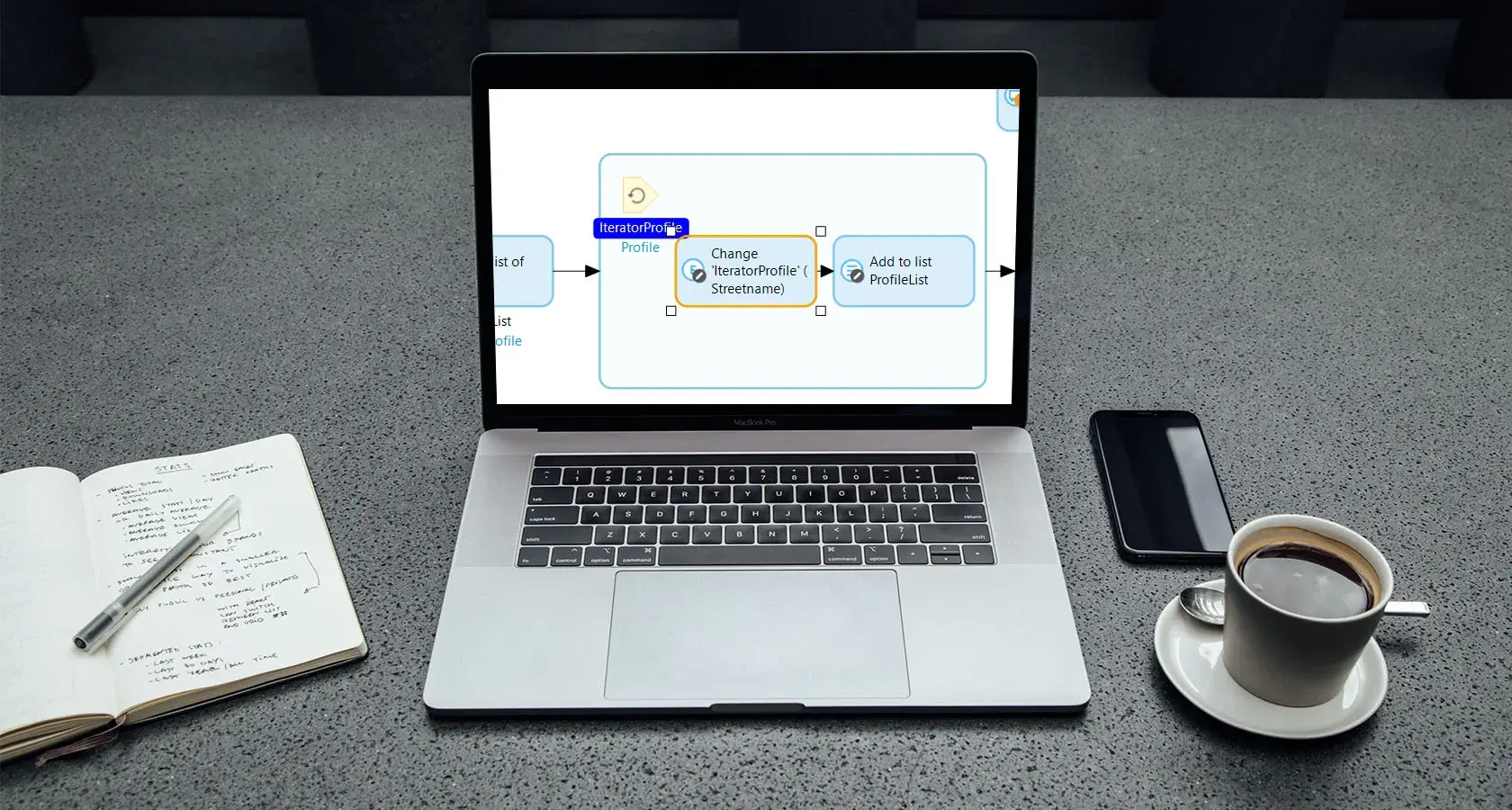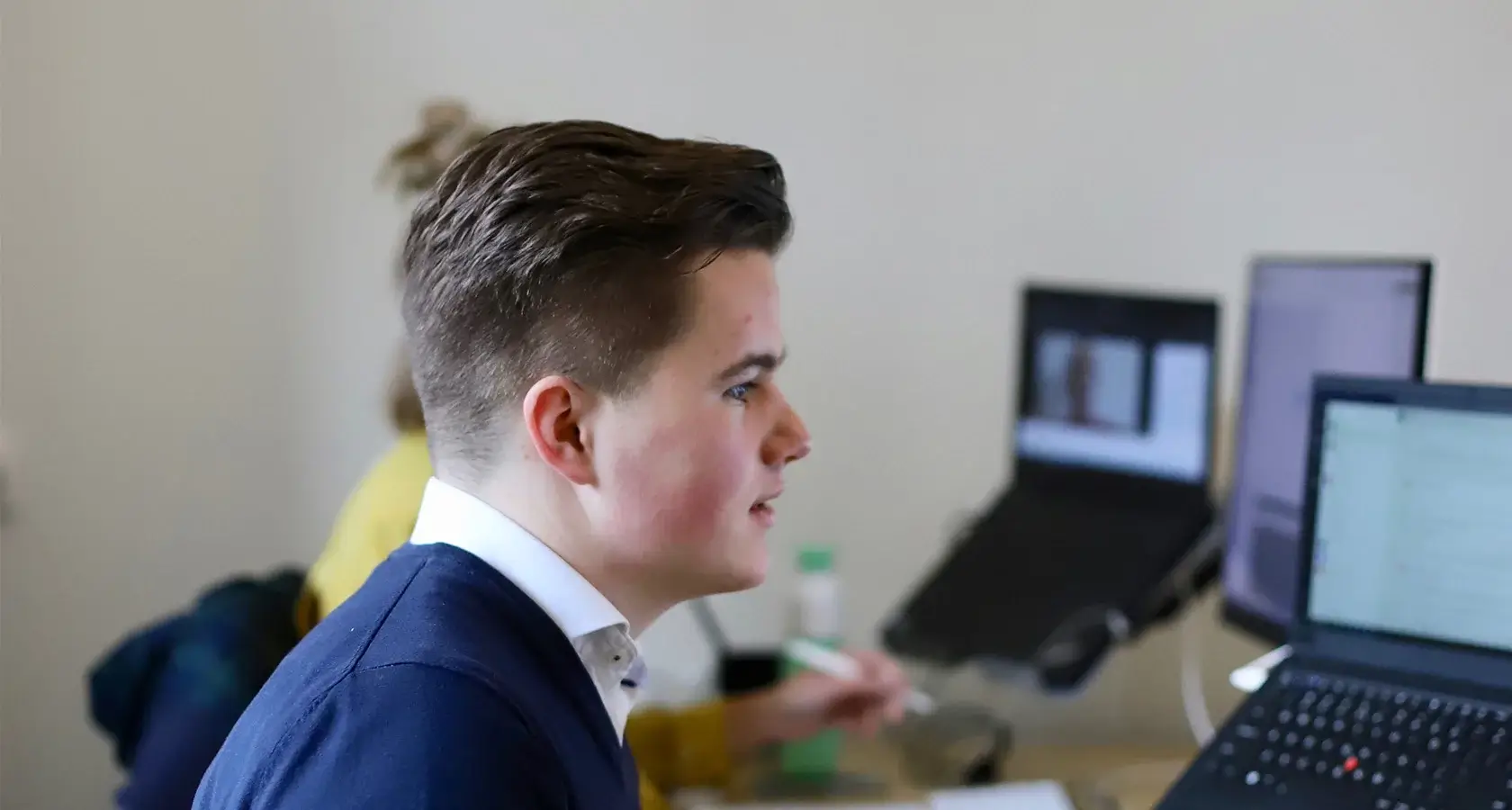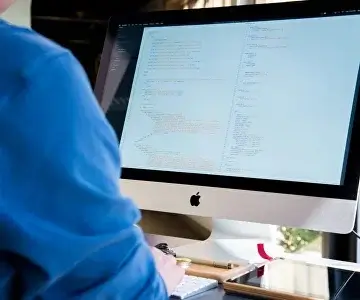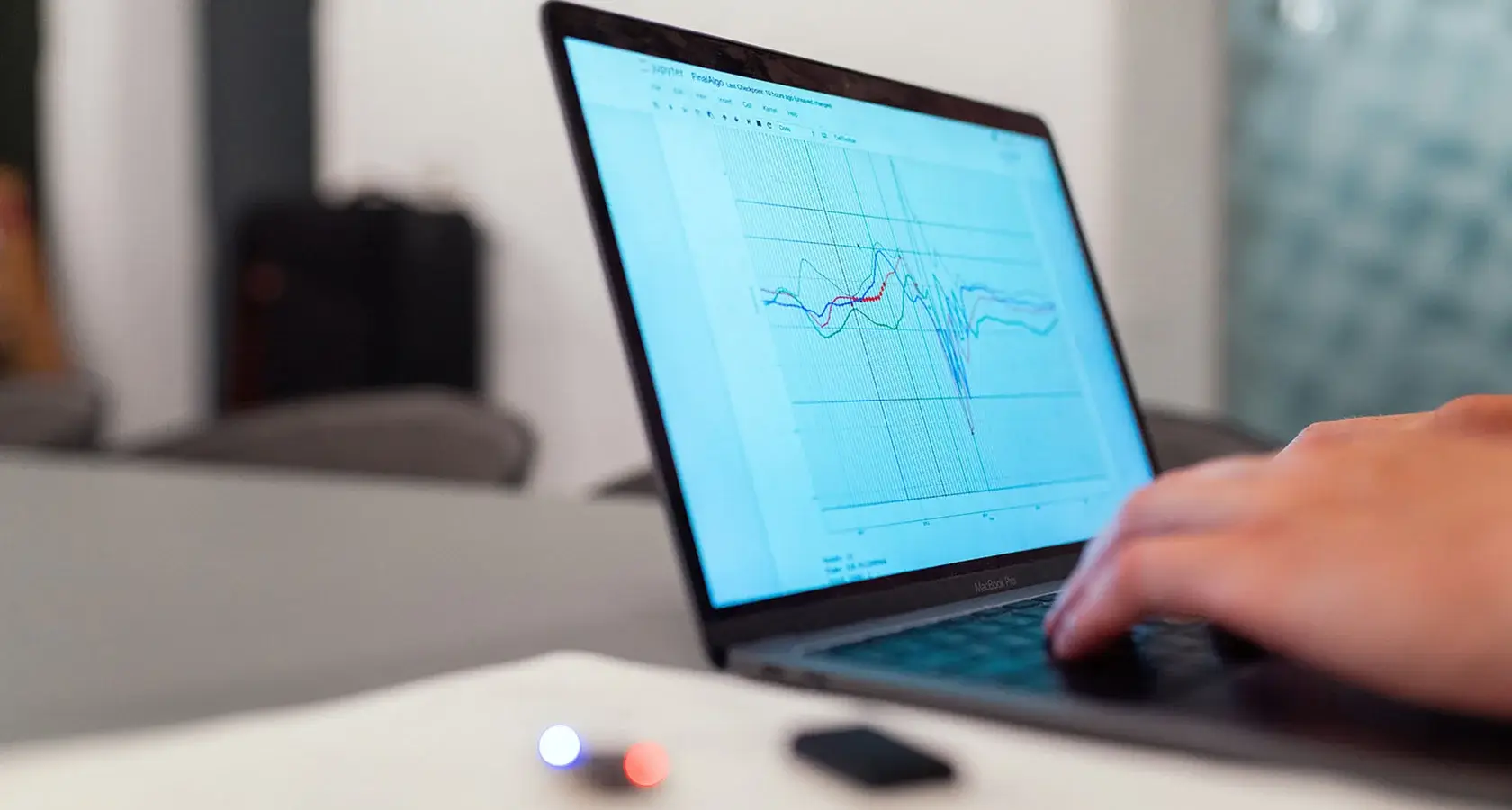My First Year at Finaps
In this blog, Jaimie Rutgers will share his experiences and thoughts about how it is like to work as a business engineer at Finaps. Jaimie is one of our business engineers at Finaps and managed to combine his role with his studies in Econometrics and Operations Research.

08-2020
Author: Jaimie Rutgers
Introduction
While studying econometrics at the VU I was part of a student organisation named Kraket. It was through Kraket that I was introduced to Finaps, one of its partner study associations in Amsterdam. I soon found out that Finaps was an interesting, young, energetic, but also very professional company. So, I decided to apply as a business engineer.
In this article I will guide you though my first year at Finaps and tell you about all the ins and outs of a business engineer. What does it take to become a business engineer? What types of work will you do? And what is Finaps like as a company?
The Beginning
My first year at Finaps started in the summer of 2019. I was assigned a mentor, Jelle, who guided me through the whole first phase: the onboarding. The onboarding takes place during your first month where (depending on your function, you will learn all the basics of the technologies you will be working with. As a business engineer, this meant I would learn Mendix.
Mendix is a low code system, which is based on a more visual way of developing applications. This means you will not be writing lines of code to create an application, but you rather use a ‘What You See Is What You Get’ principle. However, it must not be forgotten that Mendix is not a no code platform, meaning that Mendix does allow for custom code (see this link for more information).

This Mendix onboarding consisted of doing online courses and ended with a mini-project, where I created my own flight booking application. It was quite cool to see how quickly I was able to create an application! As I started working separate days a week, it was a little unfeasible to start at a client right away. Luckily, we also have our internal application: MyFinaps.
MyFinaps is a Mendix application created and maintained by Finaps. The application includes a hour registration, declarations, holiday requests and account management of clients. From September until January I was involved in the development and maintenance of this application.
For me, this was a very educational process: I was able to further develop my Mendix skills, but there was less pressure compared to working at a client, as it was an internal project.
Next to MyFinaps, I was also involved in writing proposals for potential new clients. This required a totally different set of skills as I no longer was developing applications. I was now working in close collaboration with our business development managers and was providing the technical input for these proposals. Although writing proposals is not something specific for a business engineer, Finaps is the type of company that if someone is good at something, you are encouraged to expand your tasks beyond your job description.
Business As Usual
As of February 2020 I was working four days a week, so there was room for client projects. As a business engineer you will spend most of your time developing web applications using the Mendix platform. The applications you create as a business engineer at Finaps will mainly be digital innovation applications (for example the online screening platform case) or process optimisation applications (for example the portal solution case).
One of the projects was the MOBI application, where we were doing a maintenance and support phase. Simultaneously I was (with another team) developing a new application for a new client. This specific project was great to work on as I was part of the development team of the Proof of Concept for this application.
What makes a business engineer a good business engineer is that you are able to translate the requirements of the business to the technical aspects of the application, and vice versa. Hence, the name business engineer. This is achieved by truly understanding the business, thinking along with clients, and being able to identify technical pitfalls where some business requirements cannot be met exactly. This requires a certain adaptability from a business engineer: creative solutions and honest communication of limitations.
Finaps is the type of company that if someone is good at something, you are encouraged to expand your tasks beyond your job description.
This year, Finaps moved to an even more agile organisation with chapters and guilds. For the coming months I will be primarily focusing on the onboarding chapter, of which I am a member. This will consist of further developing the complete process a new employee must go through in order to get onboard at Finaps, including content, planning and processing feedback from people throughout the whole company.
It is a great opportunity to use my own experience from a year before to contribute to a well thought out onboarding program. In the end, it is rewarding to contribute to the continuity of Finaps this way. For me, it is the variety of types of work at Finaps that make it so exciting to work here.
Culture
To be honest, Finaps is more than a company, it is rather a family. Everyone is very open and inclusive and in my opinion there is little hierarchy. People here are always willing to help you and soon enough you know everyone.
Friday afternoons (and usually nights) are for drinks where we kick-off the weekend and catch up with each other as we usually work all over the Netherlands at the client until Thursday. The social highlights of the year include, amongst others, the summer event, the Christmas party and the offsite where we stayed at an external location.
It is also important to remember the business culture of Finaps. Given the ‘small’ (last year we almost doubled in size) nature of the company, this also means that you get responsibilities quite quickly. As a result you have plenty of possibilities to grow within Finaps. To conclude, Finaps is the ideal place for technical, creative and passionate people that value a small, yet professional and (above all else) family-like company.


